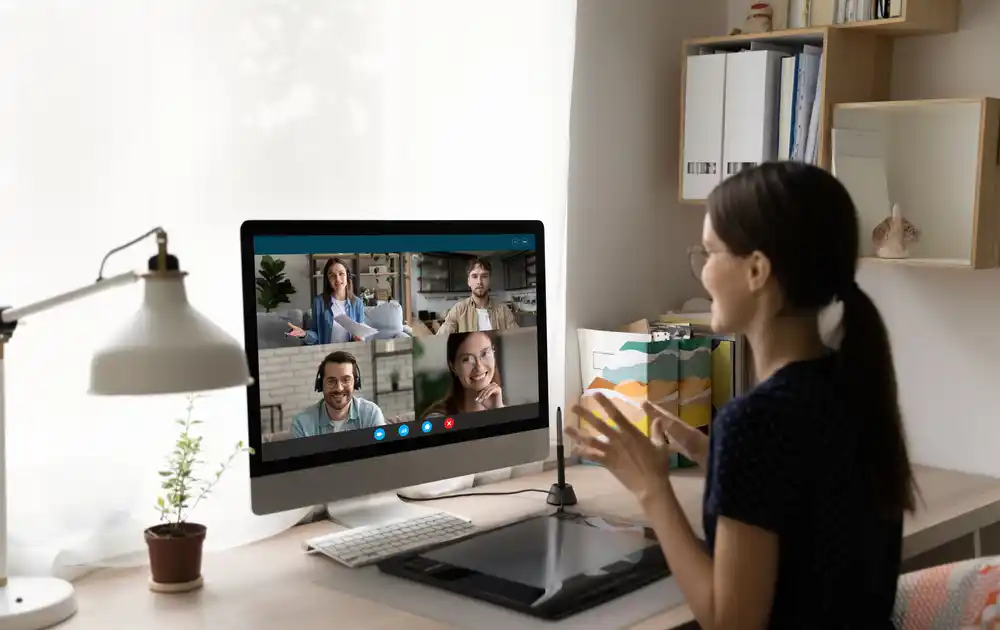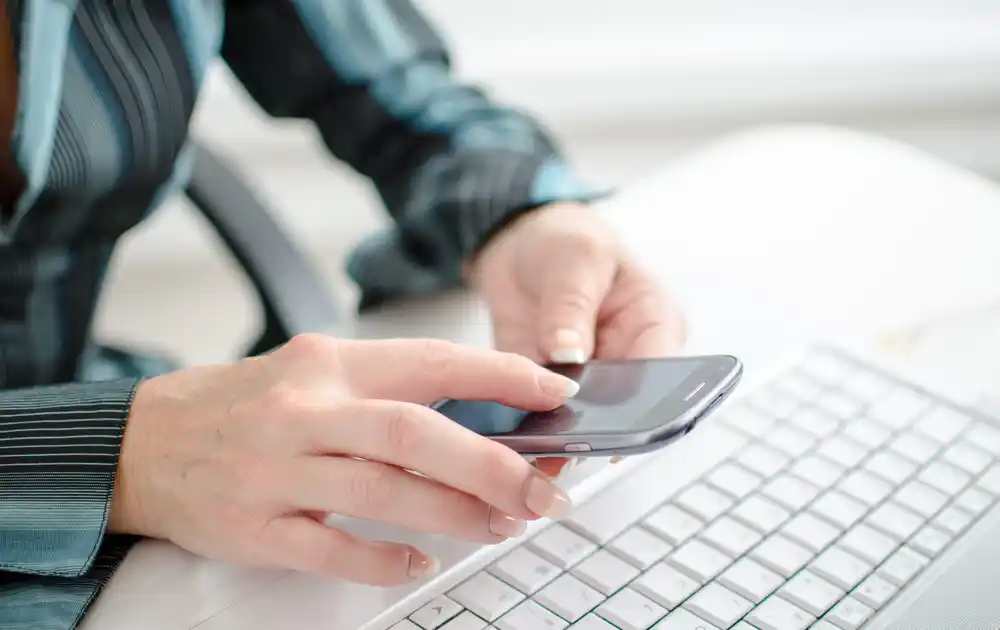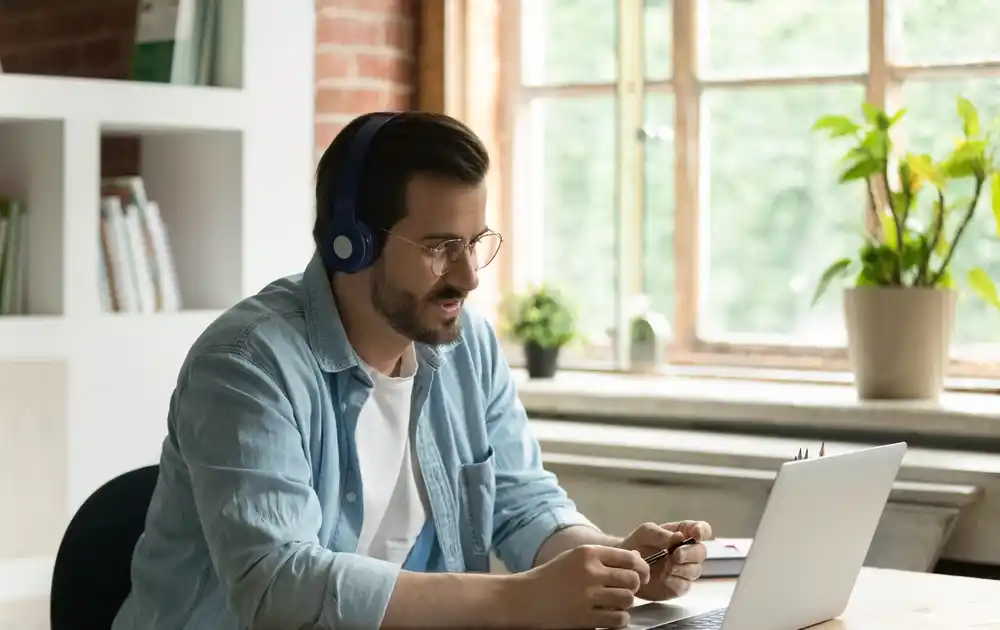Virtual job interviews are increasingly common. While they save you from having to worry about a few things, like getting stuck in traffic, they can create new anxieties. For instance, you might fret about the internet acting up or your neighbors blasting music. Fortunately, you can help ease your nerves with a bit of preparation.
With this in mind, here are some helpful dos and don’ts to nail a virtual interview. Keep reading to prepare yourself before your interview.
Do Familiarize Yourself With the Tech
Once you know which video platform you’ll be using, check to see if you need to download it or create an account. After that, verify that you’re able to sign in without a hitch. Look at the camera and microphone settings in case you need to turn them on.
Zoom, Google Meet, and Microsoft Teams are popular video platforms, but the company may use something else. If it’s a video platform you haven’t used, then consider having a test call with a friend or family member. That way, you’ll feel more comfortable on the big day.

Don’t Get Distracted
Create a distraction-free space for your interview. That means turning your phone and TV off, for starters. You don’t want a text or breaking news story catching your eye and breaking your train of thought, after all.
It’s also important to pick a room that’s likely to be quiet. That may mean setting up shop as far away as possible from noisy neighbors. And tell everyone you live with what time your interview is so they know to leave you alone.
 Shutterstock
ShutterstockDo Keep Timing in Mind
When it comes to virtual interviews, timing is everything. So, try to schedule your interview at a time that’s good for you and likely to be quiet. For example, avoid Tuesday mornings if that’s when trash collection comes or Thursday afternoons if that’s when your neighbor’s band practices.
Also, try to avoid times when your kids or pets could need your attention. And keep in mind the time of day that’s best for you. If you’re not a morning person, then request an afternoon interview and vice versa. Then you’re more likely to feel sharp and ready to go at your interview time.
 Shutterstock
ShutterstockDon’t Rush Before Your Interview
Along the same lines, build some time into your schedule, so you don’t have to rush before the interview. Take a few minutes to make sure you have a glass of water, a notebook, and a pen or pencil. You don’t want to find yourself in the middle of the interview and realize you forgot or ran out of time to grab something you need.
Additionally, it can help to take some time to calm your nerves and loosen up. For instance, you might find a workout or a walk around the block helps keep your mind from getting anxious. Or maybe turning up your favorite song and dancing it out is more your style. Either way, some extra time before an interview can help.
 Shutterstock
ShutterstockDo Have a Backup Plan
If you work from home, then you probably know that technical difficulties are a possibility. But for those who don’t have video conference calls very often, IT company Rahi says buffering, out-of-sync video/audio, and dropped calls are some of the more common issues that can pop up.
We don’t bring this up to worry you. Rather, it’s a reminder to come up with a backup plan. To that end, check to see if your video call has a dial-in number. If so, jot it down in case you need to call in because of internet troubles. If not, then reach out to the company to see if you can get a phone number.
 Shutterstock
ShutterstockDon’t Read Off Your Screen
Even though you’re sitting behind a computer screen, resist the temptation to read off prepared responses. That’s because it can sound stilted and unnatural. Your interviewers might not see you do it, but they’ll probably hear it in your voice.
However, you can use this setup to your advantage. In the corner of your screen, you could open a small text window with some important information you plan to reference. For example, consider jotting down bullet points about past achievements.
 Shutterstock
ShutterstockDo Look the Part
According to WorkPac, “65% of hiring managers say clothes can be the deciding factor between two similar candidates.” So, you shouldn’t overlook your outfit. If you don’t know the company’s dress code, then ask the hiring manager.
Generally, it’s smart to keep your look simple and polished. And, of course, wear something work-appropriate on the bottom — not PJs. You never know when you might need to stand up. You may even get a confidence boost from a head-to-toe look.
 Shutterstock
ShutterstockDon’t Forget to Ask Questions
Much like a traditional in-person interview, it’s a good idea to spend some time thinking about thoughtful questions. With this in mind, research the company. Look at their mission statement and read up on recent projects.
Then you can use that research to shape your questions and avoid asking about things that can be answered by the “About Us” section of the company’s website. And be sure to use that notebook you grabbed before the interview to jot down any questions or thoughts you want to follow up on afterward.

Do Send a Follow-Up Email
It’s customary to follow up with a thank you note, but you might wonder whether an email or handwritten letter is more appropriate. Monster says hiring teams typically make a decision within 48 hours of interviewing all of the candidates, so an email often makes sense.
The source recommends sending an email sometime after 5 p.m. on the day of your interview. Use the email to showcase why you’re a great fit for the position and thank the interviewer for their time. If several people interviewed you, then send a tailored email to each one.
 Shutterstock
ShutterstockDon’t Panic If Something Goes Wrong
Even though you’ve scheduled the interview at an optimum time and have a phone number in case your internet goes down, it’s still possible for something to go wrong. Life is unpredictable. For instance, your kid might burst into the room or your cat might jump on your keyboard.
Should your interview get interrupted for any reason, try not to get flustered. In fact, unexpected hiccups can be an opportunity to impress your interviewer with your ability to put out fires and get back to business. No matter what happens, don’t lose your cool.
 Shutterstock
Shutterstock